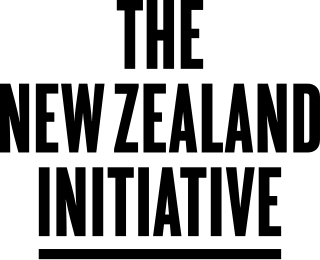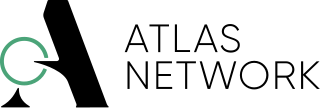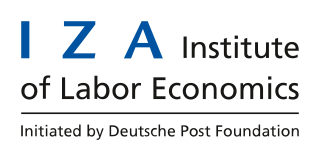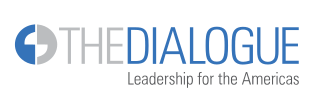
A think tank, or policy institute, is a research institute that performs research and advocacy concerning topics such as social policy, political strategy, economics, military, technology, and culture. Most think tanks are non-governmental organizations, but some are semi-autonomous agencies within government or are associated with particular political parties, businesses or the military. Think tanks are often funded by individual donations, with many also accepting government grants.

Vocational education is education that prepares people for a skilled craft as an artisan, trade as a tradesperson, or work as a technician. Vocational education can also be seen as that type of education given to an individual to prepare that individual to be gainfully employed or self employed with requisite skill. Vocational education is known by a variety of names, depending on the country concerned, including career and technical education, or acronyms such as TVET and TAFE.

The European Trade Union Confederation (ETUC) is the major trade union organisation representing workers at the European level. In its role as a European social partner, the ETUC works both in a consulting role with the European Commission and negotiates agreements and work programmes with European employers. It coordinates the national and sectoral policies of its affiliates on social and economic matters, particularly in the framework of the EU institutional processes, including European economic governance and the EU Semester.

The New Zealand Initiative is a pro-free-market public-policy think tank and business membership organisation in New Zealand. It was formed in 2012 by merger of the New Zealand Business Roundtable (NZBR) and the New Zealand Institute. The Initiative’s main areas of focus include economic policy, housing, education, local government, welfare, immigration and fisheries.

Science Foundation Ireland is the statutory body in Ireland with responsibility for funding oriented basic and applied research in the areas of science, technology, engineering and mathematics (STEM) with a strategic focus. The agency was established in 2003 under the Industrial Development Act 2003 and is run by a board appointed by the Minister for Further and Higher Education, Research, Innovation and Science. SFI is an agency of the Department of Further and Higher Education, Research, Innovation and Science.

Atlas Network, formerly known as the Atlas Economic Research Foundation, is a non-governmental 501(c)(3) organization based in the United States that provides training, networking and grants for libertarian, free-market, and conservative groups around the world.

The Human Sciences Research Council (HSRC) of South Africa is Africa's largest dedicated social science and humanities research agency and policy think tank. It primarily conducts large-scale, policy-relevant, social-scientific projects for public-sector users, for non governmental organisations and international development agencies in support of development nationally, in the Southern African Development Community (SADC) and in Africa.
Private sector development (PSD) is a term in the international development industry to refer to a range of strategies for promoting economic growth and reducing poverty in developing countries by building private enterprises. This could be through working with firms directly, with membership organisations to represent them, or through a range of areas of policy and regulation to promote functioning, competitive markets.

The IZA - Institute of Labor Economics, until 2016 referred to as the Institute of the Study of Labor (IZA), is a private, independent economic research institute and academic network focused on the analysis of global labor markets and headquartered in Bonn, Germany.

The Pakistan Institute of Development Economics is a post-graduate research institute and a public policy think tank located in the vicinity of Islamabad, Pakistan.

The Inter-American Dialogue, also known as the Dialogue or IAD, is a U.S.-based think tank in the field of international affairs primarily related to the Western Hemisphere. Headquartered in Washington, D.C it intends to "foster democratic governance, prosperity, and social equity in Latin America and the Caribbean". The Dialogue's research areas focus on the rule of law, education, migration, remittances, energy, climate change and extractive industries.

Eric Alan Hanushek is an economist who has written prolifically on public policy with a special emphasis on the economics of education. Since 2000, he has been a Paul and Jean Hanna Senior Fellow at the Hoover Institution, an American public policy think tank located at Stanford University in California. He was awarded the Yidan Prize for Education Research in 2021.
Canadian Policy Research Networks (CPRN) was a non-profit, non-partisan socio-economic think tank based in Ottawa, Ontario, Canada, with a focus on citizen engagement and policy research and analysis.
The International Centre for Policy Studies (ICPS) is an independent NGO, founded in 1994 which aims to promote public policy concepts and practice and apply them to influential policy research that affects both the public and private sectors in Ukraine.

Azim Premji University is an Indian non-profit private university, located in Bengaluru, Karnataka. It was established by the Azim Premji University Act (2010) and recognised by the University Grants Commission under Section 2F.
Science and technology in Tanzania describes developments and trends in higher education, science, technology, innovation policy, and governance in the United Republic of Tanzania since the turn of the century.

The Free Market Foundation (FMF) refers to itself as a classical liberal think tank located in Bryanston, Johannesburg, South Africa. Founded in 1975, the FMF was established to further human rights and democracy through the principles of an open society, the rule of law, personal liberty, and economic liberalism and press freedom. According to The Mercury editor Fikile-Ntsikelelo Moya, the FMF is a "libertarian think tank" wanting "unfettered capitalism" which "eschews all forms of state intervention in the life of the individual citizen". In 1987, Leon Louw, the FMF's Executive Director, described the work of the FMF as follows:
Science and technology in Kazakhstan – government policies to develop science, technology and innovation in Kazakhstan.
Ann Bernstein is a South African analyst and commentator who is executive director of the Centre for Development and Enterprise. A prolific writer on South African social and economic policy, she is known for her pro-business views about the contribution of corporations to social and economic development.












